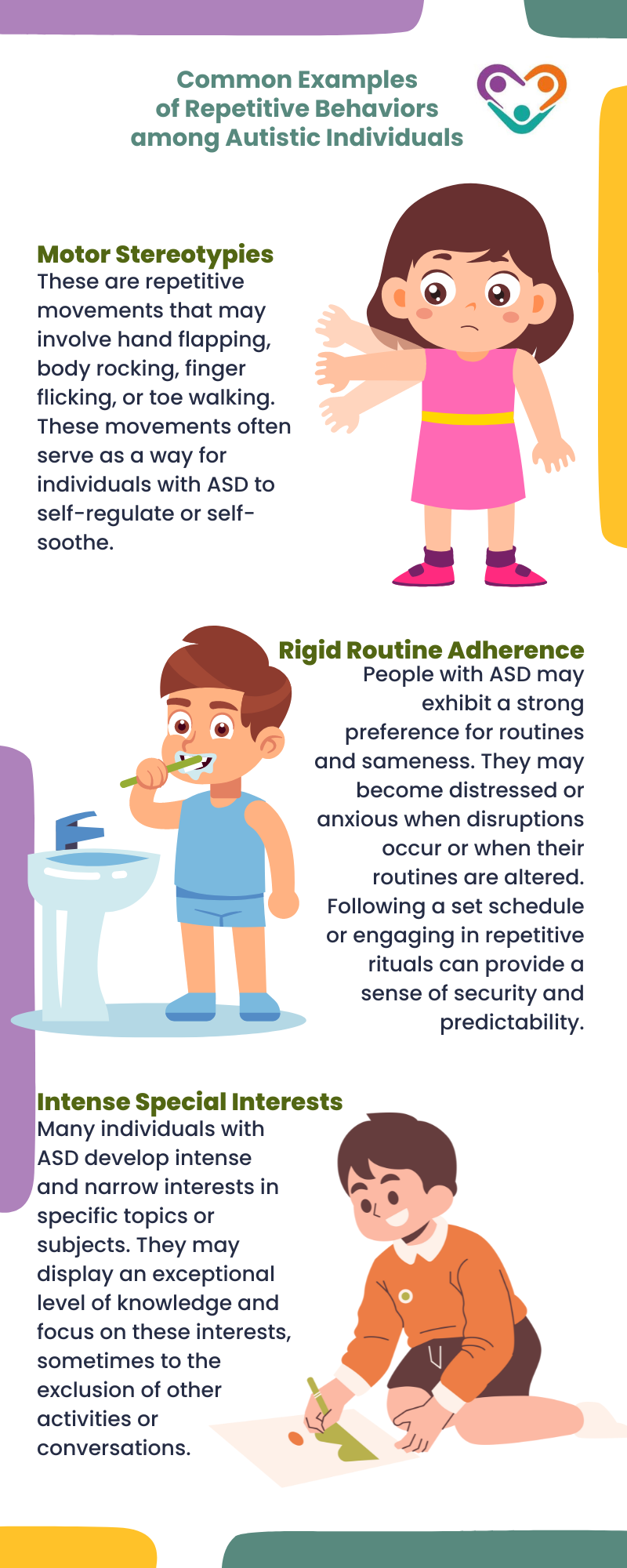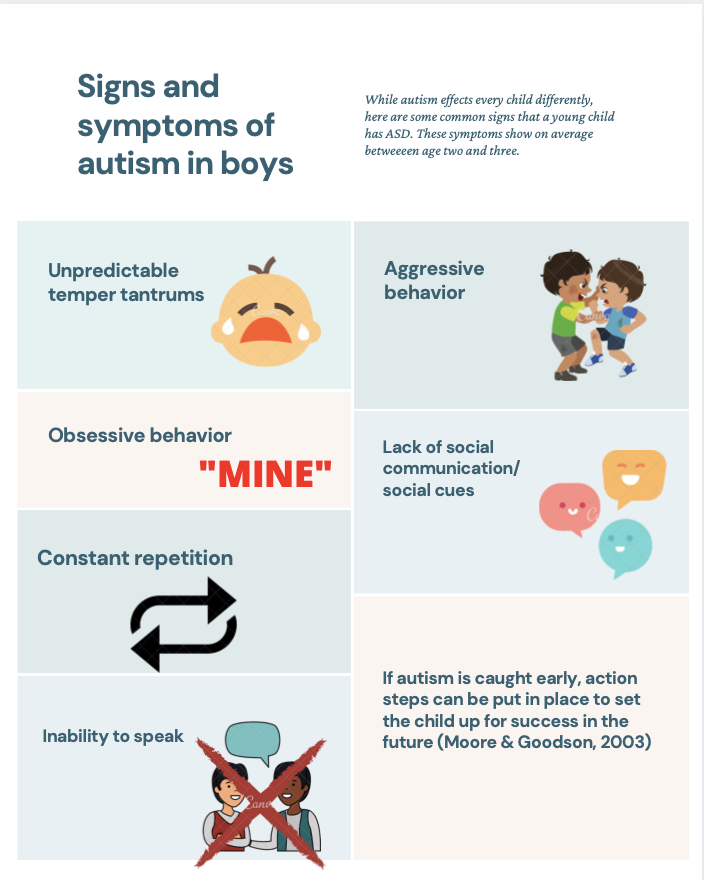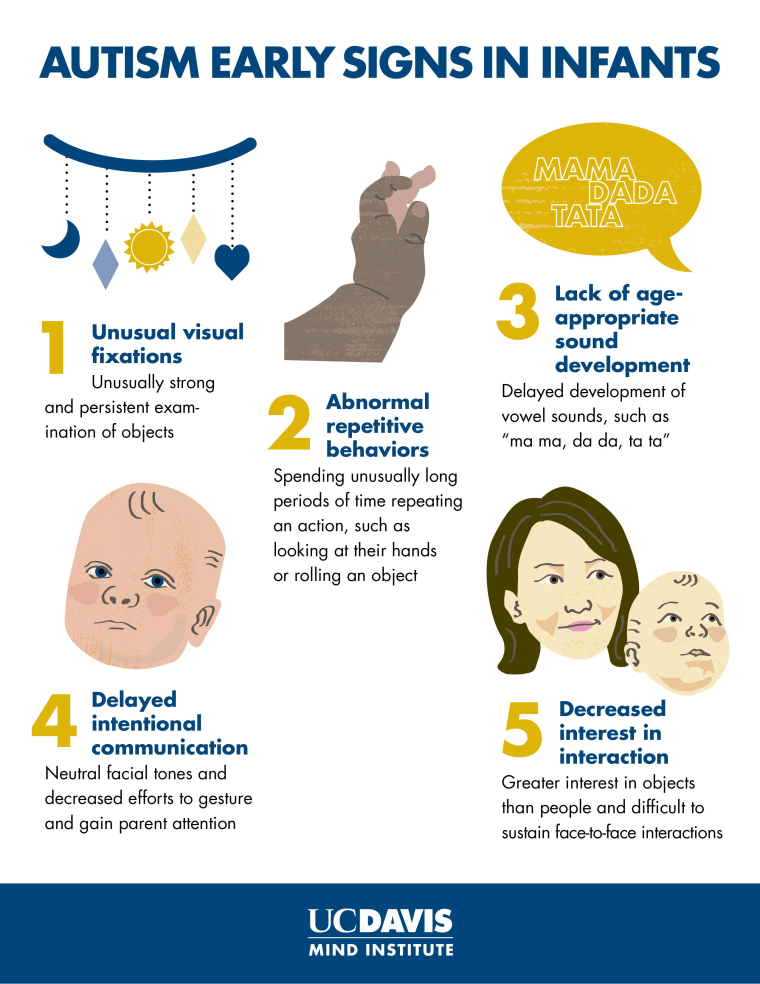Key Symptoms And Signs to Acknowledge in People With Behavioral Autism
When you come across somebody with behavioral autism, identifying essential signs and signs and symptoms is necessary. Furthermore, sensory sensitivities can lead to frustrating experiences.
Challenges in Social Communications
When you engage with someone on the autism spectrum, you could notice they have a hard time with social cues and communication. These obstacles can make social interactions feel frustrating for them.
When they do engage, they might talk regarding their rate of interests in excellent information without seeing if you're interested. Understanding these difficulties can assist you approach interactions with empathy and persistence, fostering a much more comfortable atmosphere for both of you.
Problem With Verbal and Non-Verbal Interaction

Recognizing these indicators is important, as it assists you far better support and engage with people on the autism range. By understanding their communication obstacles, you can foster much more purposeful links and provide a much more encouraging environment.
Repetitive Habits and Regimens
Interaction obstacles frequently go along with various other indicators of autism, such as repetitive behaviors and a strong preference for regimens. You may see that people with autism frequently participate in certain, repetitive activities, like hand-flapping, shaking, or duplicating expressions. These actions can give comfort and a sense of control in a typically overwhelming world.
When they comply with a structured routine,Regimens are just as vital; several people prosper. You might discover that modifications to these routines can lead to significant distress. For example, if they have a day-to-day routine of eating breakfast at a particular time or following a certain course to college, any type of interruption can cause anxiety.
Acknowledging these patterns helps you recognize their habits and offer support. By accommodating their demand for regular and allowing recurring actions, you can create an extra comfortable setting that alleviates their challenges.
Sensory Level Of Sensitivities

Typical Sensory Triggers
Sensory sensitivities can significantly influence every day life for people with autism, as specific stimulations commonly trigger overwhelming responses. Usual sensory triggers include loud noises, intense lights, and strong smells. You could discover that unexpected audios, like alarm systems or sirens, cause anxiousness or distress. Fluorescent lights in stores can really feel harsh and uneasy. Appearances can additionally play a considerable function; rough textiles or particular food structures might be excruciating for you. Furthermore, crowded locations can overwhelm your detects, making it hard to concentrate or relax. Recognizing these triggers can aid you handle your setting much better. By being aware of what impacts you, you can take steps to minimize discomfort and enhance your daily experiences.
Behavioral Reactions Discussed
Comprehending your behavioral reactions to sensory sensitivities is necessary, as they often disclose just how you connect with the globe. You may observe that specific noises, lights, or structures overwhelm you, bring about anxiousness or discomfort. When confronted with these stimulations, you may withdraw, cover your ears, and even respond aggressively. These feedbacks aren't simply peculiarities; they're your means of dealing with overstimulation. You may additionally discover yourself looking for specific sensory experiences, like deep stress or peaceful settings, to assist ground on your own. Acknowledging these patterns helps you recognize your requirements better and can lead exactly how you connect them to others. By acknowledging your sensory level of sensitivities, you can work towards developing an environment that really feels much more convenient and comfortable for you.
Coping Methods Overview
Acknowledging your sensory level of sensitivities is just the very first action; currently it's time to check out coping techniques that can help you handle those experiences properly. Beginning by producing a sensory toolkit tailored to your needs. Developing an organized regimen can also provide predictability, reducing anxiousness around sensory overload.
Limited Rate Of Interests and Focus
While several people establish a wide variety of rate of interests, those with autism commonly demonstrate limited rate of interests and an intense emphasis on certain topics. You could notice that a person with autism can spend hours delving right into their favorite topic, whether it's a specific kind of train, a certain film, or a clinical idea. This intense emphasis isn't simply a pastime; it can become a main part of their identification and social interactions.
You might find that discussions focus on these rate of interests, and they may have a hard time to take part in wider topics. For them, these focused passions offer convenience and a sense of proficiency. While it is very important to urge exploration of new topics, appreciating their interests is equally crucial. By comprehending and acknowledging these limited interests, you can foster a helpful setting where they really feel valued and understood, enabling for even more meaningful connections and interactions.
Psychological Law Troubles
People with autism frequently face challenges in psychological law, which can be affected by their intense concentrate on specific passions. You could observe that when a person is deeply engaged in a preferred task, they can experience solid emotions, whether excitement or frustration. This strength occasionally makes it difficult for them to move gears or manage their sensations when things don't go as intended.

Variability in Developmental Turning Points
When it comes to developing landmarks, you'll discover that people with autism usually reveal a vast range of irregularity. You may see a child succeed in language skills however battle with social communications.
It's necessary to acknowledge that each person's trip is one-of-a-kind. Some might establish complicated skills early, only to encounter obstacles later. Others may take longer to accomplish fundamental milestones but after click over here now that prosper in certain areas. Observing these patterns can help you recognize their staminas and needs better.
Frequently Asked Inquiries
Just How Is Autism Identified in Children and Grownups?
To identify autism in children and grownups, specialists examine behavior, interaction abilities, and social interactions. They usually utilize standardized examinations, interviews, and observations to establish if a private satisfies the standards for autism range disorder.
Are There Various Kinds of Autism Spectrum Disorders?
Yes, there are various types of autism range problems, including Asperger's disorder and pervasive developing disorder-not otherwise specified. Each kind varies in intensity and features, so comprehending these differences can help you much better assistance people with autism.
What Treatments Are Reliable for Individuals With Autism?
When considering effective therapies for individuals with autism, you'll locate options like Applied Habits Evaluation, speech treatment, and occupational therapy. Each strategy can help improve interaction, social abilities, and daily functioning tailored to private demands.
Can Individuals With Autism Lead Independent Lives?
Yes, individuals with autism can lead independent lives. With the best assistance, abilities training, and sources, you can help them develop self-sufficiency, handle everyday jobs, and grow in numerous environments, fostering their self-reliance.
Exactly How Can Family Members Assistance Loved Ones With Autism?
You can support your loved ones with autism by creating a structured atmosphere, motivating their rate of interests, exercising persistence, promoting interaction, and advertising social abilities. Commemorate their success, regardless of just how tiny, and construct an go right here encouraging area.
Although several people on the autism range can recognize and make use of language, they often deal with substantial obstacles with both spoken and non-verbal communication. Acknowledging these signs is vital, as it helps you better support and involve with people on the autism spectrum. You might notice that people with autism usually involve in certain, repetitive actions, like hand-flapping, rocking, or duplicating expressions.Sensory level of sensitivities can substantially affect everyday life for individuals with autism, as certain stimuli frequently trigger frustrating responses.When it comes to developing landmarks, you'll observe that people with autism usually reveal a broad range of irregularity.
Comments on “Turning challenges into growth using Autism Behavioral Therapy tools”